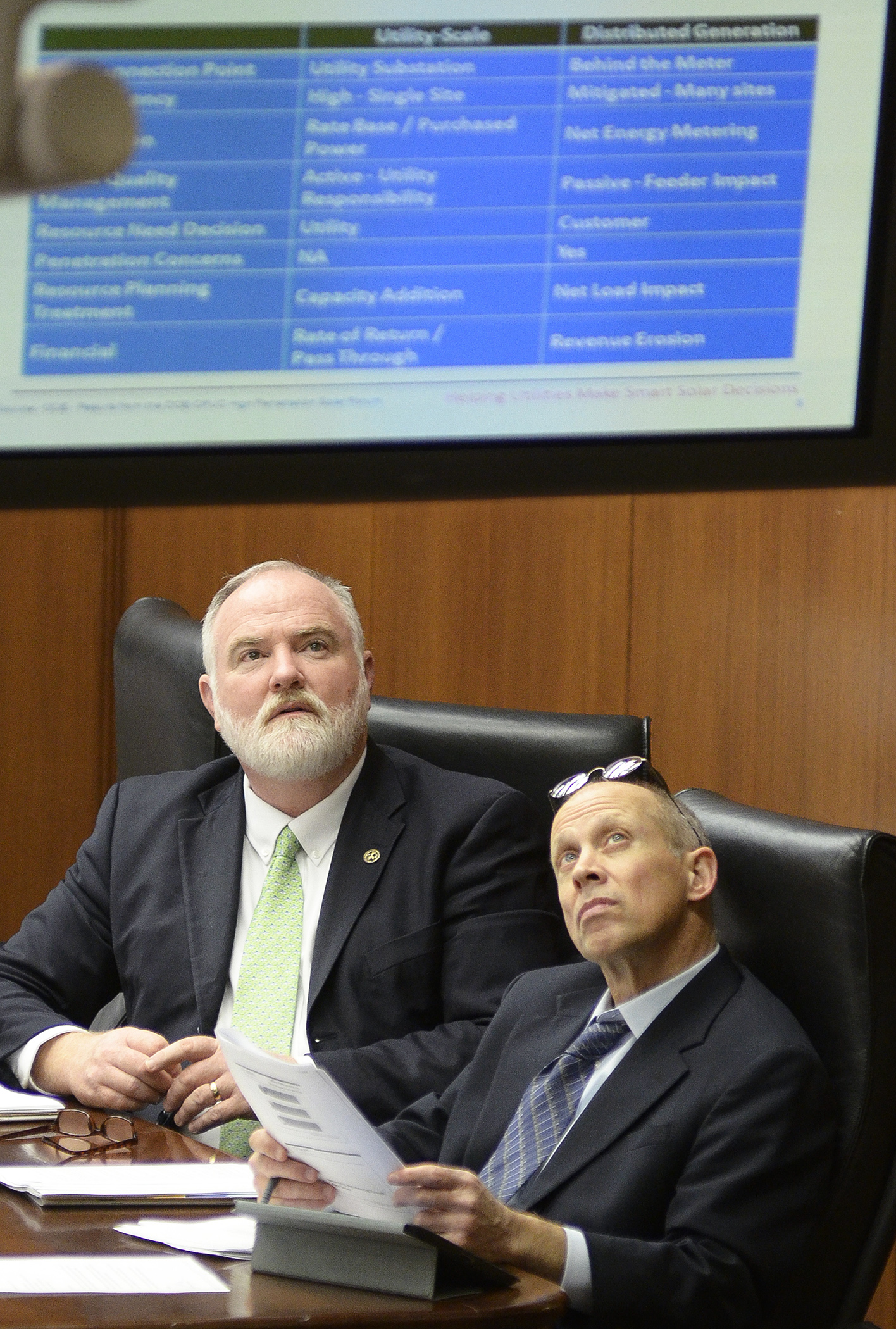Price of solar power is hot topic

The House Job Growth and Energy Affordability Policy and Finance Committee was the stage for a wide-ranging discussion Wednesday on the economics of solar energy, with national experts from as far as Washington, D.C. and Harvard University.
The committee’s topic – “net metering” – was defined by Julia Hamm, president and CEO of Solar Electric Power Association (SEPA), as the predominant way customers are compensated by utilities for the excess solar energy generated on their own roofs. Hamm said there is national debate about whether net metering is the right solution going forward.
Arguing that net metering is based on obsolete factors, Ashley Brown, executive director of the Harvard Electricity Policy Group at the John F. Kennedy School of Government at Harvard University, said it leads utilities to pay full retail price for a wholesale product.
Lynn Hinkle, policy director at the Minnesota Solar Industry Association, defended the pricing system for solar power set out in state statute. Subdivision 10 of Minnesota’s statute on cogeneration and small power production is what Hinkle called the “fun stuff,” and Rep. Melissa Hortman (DFL-Brooklyn Park) said should be titled the “Value of Solar.”
Hamm said “the Minnesota example” for pricing solar was attracting nationwide attention. Hinkle praised the state’s method for having drawn on a wide range of expertise and data. Brown said the system is not flexible enough to reflect the dynamism of a market for electricity that changes by the hour.
As use of solar power rises and its costs plummet, SEPA is seeking “win-win-win solutions between the utilities, the solar industries and customers,” Hamm said. But several committee members said they see solar energy policy in Minnesota as divisive, with subsidies unfairly benefiting solar customers at the expense of non-solar customers.
“The public subsidizes the installation of these [solar] panels. The public is paying for the infrastructure to get the electricity back and forth. The fiscal benefit that the property owner gets, however, they don’t pay any tax on that,” said Rep. Bob Loonan (R-Shakopee). “So that must be the win-win-win. It all goes to the same address.”
Others are concerned that Minnesota includes all relevant factors in putting a value on solar. Rep. Jean Wagenius (DFL-Mpls) said she wants to make sure the state’s method of setting a price for solar energy includes recent Pollution Control Agency data on the medical benefits to society of shifting to renewable energy sources.
Related Articles
Search Session Daily
Advanced Search OptionsPriority Dailies
Ways and Means Committee OKs proposed $512 million supplemental budget on party-line vote
By Mike Cook Meeting more needs or fiscal irresponsibility is one way to sum up the differences among the two parties on a supplemental spending package a year after a $72 billion state budg...
Meeting more needs or fiscal irresponsibility is one way to sum up the differences among the two parties on a supplemental spending package a year after a $72 billion state budg...
Minnesota’s projected budget surplus balloons to $3.7 billion, but fiscal pressure still looms
By Rob Hubbard Just as Minnesota has experienced a warmer winter than usual, so has the state’s budget outlook warmed over the past few months.
On Thursday, Minnesota Management and Budget...
Just as Minnesota has experienced a warmer winter than usual, so has the state’s budget outlook warmed over the past few months.
On Thursday, Minnesota Management and Budget...